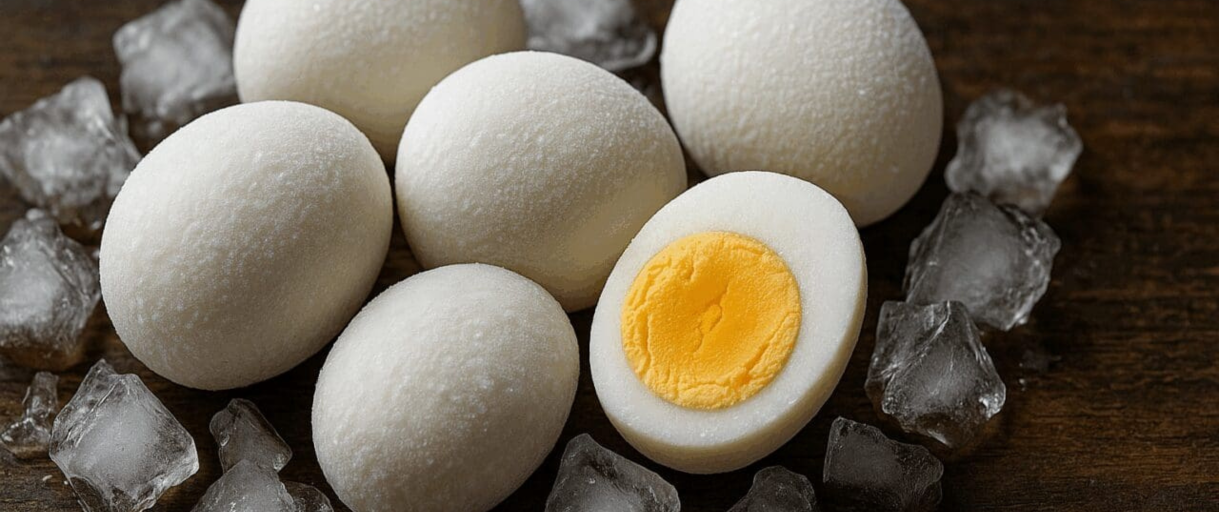A Natural Way to Preserve a Protein Staple
Eggs have long been a symbol of simplicity and sustenance. Whether plucked fresh from a backyard coop or brought home from the store, they carry a versatility few foods can match. But what happens when you’ve boiled a dozen and can’t eat them all in time? Can you freeze hard boiled eggs without ruining their natural texture or compromising safety?
The answer is yes—you can freeze them and you will enjoy frozen eggs for a long time. But like any traditional practice passed down through generations, it requires care, intention, and a bit of know-how. And it is different than freezing eggs that are not boiled. While freezing hard boiled eggs isn’t ideal for everyone, especially if you’re concerned about texture, it can be a smart and sustainable choice—if done properly, often as an alternative to using fresh eggs. Keep in mind though that what you will read before does not apply to scrambled eggs, only for hard boiled eggs.
Let’s walk through how to freeze your hard boiled eggs the right way, the way that respects both the egg and your health.
Cracking the Egg’s Composition
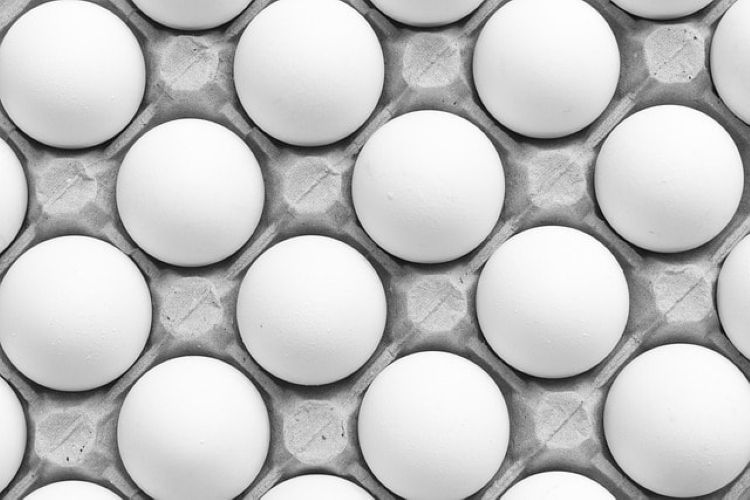
Eggs are marvels of nature. Inside each shell lies two distinct parts—white and yolk—each with its own personality when it comes to freezing.
- The egg yolk is rich and creamy when fresh, but when frozen without preparation, it can turn thick and gelatinous—making it harder to blend into your recipes. The solution? A pinch of salt or sugar before freezing helps preserve its texture, depending on whether you’re using it for savory or sweet dishes.
- The egg whites, on the other hand, are more forgiving. They can be frozen as-is and are best kept in airtight containers to avoid absorbing odors or developing freezer burn. However, once cooked into a hard boiled egg, the whites may become rubbery or watery after freezing. That’s why many people prefer freezing the yolks alone and repurposing the whites fresh.
Still, if you’re storing whole hard boiled eggs, just know what to expect in terms of texture changes—and choose your recipes accordingly.
Traditional Freezing Techniques That Work
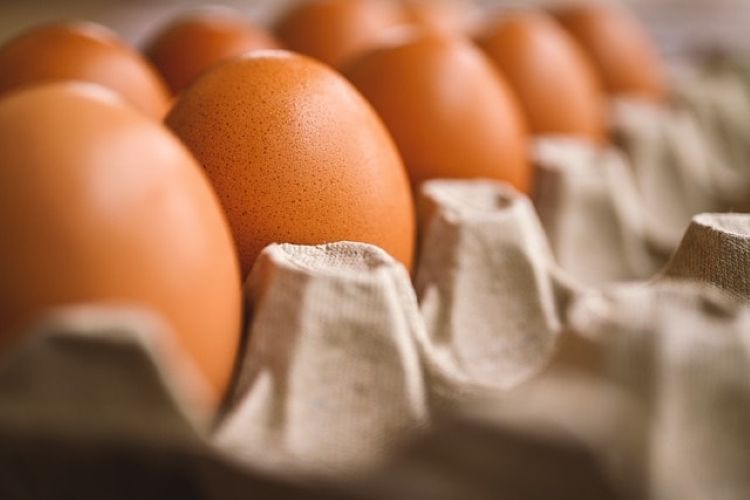
Just like preserving herbs or fermenting vegetables, freezing boiled eggs requires the right rhythm and routine. Follow these time-tested steps:
- Cool them quickly after boiling. This stops the cooking process and reduces the risk of bacterial growth. An ice bath works wonders.
- Dry thoroughly with a clean cloth or damp paper towel before freezing to prevent ice crystals from forming.
- Freeze in a single layer first. Lay eggs or yolks out on a baking sheet and flash freeze them before transferring to containers. This prevents clumping for your frozen eggs.
- Store in airtight containers or freezer-safe bags, pressing out excess air to protect from moisture and odors. Usually, just putting them in a refrigerator overnight or for a few hours is enough.
- Label with the date and contents. Eggs may be simple, but a well-organized freezer is key to reducing waste.
Hard boiled eggs, properly stored, can last up to a year in the freezer—though for best flavor and texture, aim to use them within three to six months. And don’t think that you do not have space for it. Just remove the standard ice cube tray and boile your raw eggs for long-term freezer container freezer storage.
Safety First: Know Before You Thaw
Eggs are delicate, especially the egg whites. Even when hard boiled, they require thoughtful handling to keep them safe.
- Always refrigerate cooked eggs within two hours of boiling. If you’re planning to freeze them, move them to the freezer once fully cooled.
- Keep your freezer at 0°F (-18°C) or lower for safe, long-term storage.
- Thaw eggs in the refrigerator, never on the counter. Alternatively, place them in a bowl of cold water, changing the water every 30 minutes until thawed.
- Check for spoilage before using: a slimy texture or unpleasant odor means it’s best to compost them and start fresh.
- Never refreeze thawed hard boiled eggs. Use them right away to ensure both taste and safety.
From Freezer to Fork: How to Use Them
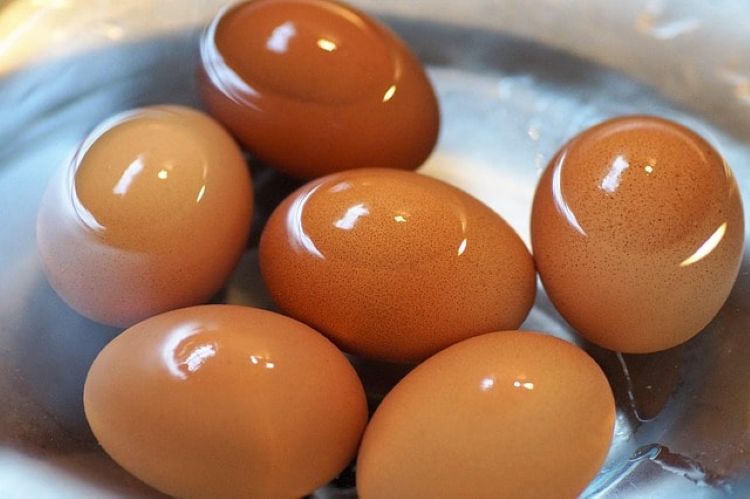
Once thawed, hard boiled eggs can be used in a variety of nourishing dishes:
- Deviled eggs: A classic. Just thaw, halve, and mix the yolks with mustard, vinegar, and herbs for a savory filling. Add sugar or corn syrup if you want to for something completely different.
- Egg salad or breakfast burritos: Chop and blend with your favorite ingredients.
- Soups and stews: Slice or crumble thawed eggs into warm broths for extra richness.
- Baked goods: Frozen yolks are excellent in cookies, cakes, and muffins.
- Salads and sandwiches: While the whites may be softer, they still provide good nutrition and texture for cold dishes.
Be mindful that thawed eggs may not be ideal where presentation and texture matter most—like a perfectly plated brunch platter—but they shine in cooked or blended recipes.
A Homestead Approach to Storage
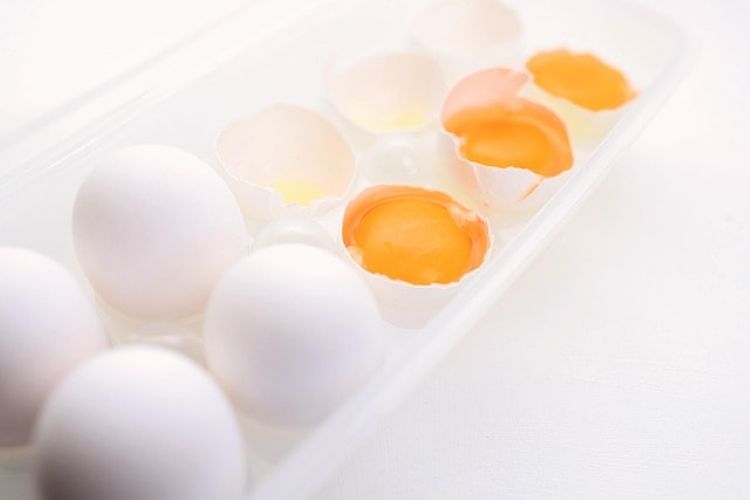
In traditional kitchens and modern homesteads alike, waste is the enemy of wisdom. If you’ve ever found yourself with more eggs than you can eat, freezing the entire egg can be a resourceful option—especially when done right. You can freeze boiled egg yolks or just store hard boiled eggs in the fridge for consuming whenever you want to in the future.
- Refrigerate hard boiled eggs for up to one week for best quality.
- Freeze only what you can realistically use within a few months to avoid freezer fatigue.
- Always store in labeled, airtight containers, keeping newer items behind older ones so nothing goes forgotten.
By honoring these simple yet powerful practices, you can make the most of every egg, cut down on food waste, and ensure a steady supply of nourishing ingredients—even during busy weeks or lean times. You hard boiled whole eggs and then you freeze them. Simple! I personally love just taking some hard boiled whites and add some corn syrup with them. But, this is not for everyone.
Final Thoughts On Boiled Frozen Eggs
Freezing hard boiled eggs isn’t the first method most people turn to—but for the prepared and the practical, it can be a valuable trick in your kitchen repertoire. Understand your ingredients. Respect their nature. And follow time-tested practices to keep your food safe, flavorful, and ready when you need it.
In doing so, you’re not just preserving eggs—you’re preserving a way of life that values self-reliance, careful stewardship, and simple, wholesome meals.
You may also like:
Can You Freeze Eggs? What Every Homesteader Should Know
Beans and Rice Survival Soup That Can Last Up To 10 Years (Video)
The Best Old Fashioned Pickled Eggs Recipe
How to Spot Spoiled Eggs Without Breaking a Shell

